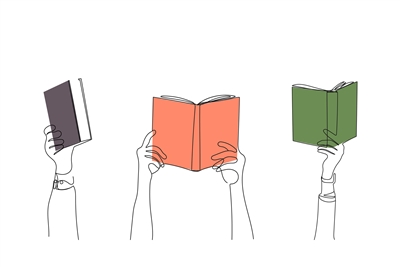How to become a better reader

How can one become a better reader? Even the question itself sounds somewhat anomalous. Unless one is speaking from a pedagogical perspective, surely all adults have become fully competent readers long before they entered secondary school. While it is certainly true we shall never again possess such prodigious learning ability - specifically language acquisition ability - as during our first few years of life, we can all learn to become better readers at any age.
Reading can easily become a passive process. How many times have you reached an end of a paragraph, only to realise you have no idea what point the writer is attempting to make. You may well have read every word, but at some point `you lost the thread,` and were reading passively, perhaps waiting for understanding to arrive, and tie everything together. To read attentively requires discipline and effort - the mind must be engaged, and not just the eyes, as they scan across the page.
If one wishes to improve their ability to understand difficult texts - works of fiction specifically, but also historical and philosophical works - then how should they begin? It is more obvious how one might improve abilities in other academic areas, becoming better at maths for example by practicing balancing equations, or history, by memorising a timeline of certain events. The methods by which one may becoming a better reader as not so readily apparent however.
The first thing you should keep in mind is respecting the text. If you are tasked with reading a well known novel, try to approach the work as if you know nothing about it. If you allow your reading to be coloured by preconceived notions, because of a film or TV adaptation, you`ll limit your appreciation of the text, and allow the opinions of others (directors, actors, scriptwriters) to affect your judgement. This may be easier said than done of course - reading a culturally significant book such as Dracula, one`s imagination may have to contend with numerous adaptations with the story. Nevertheless you should try to approach the text as if you know nothing about it. This means the first time you encounter a character, allow yourself to judge them based only on what the text tells you, rather than the way an actor may have portrayed them on the screen. The first time I read One Flew Over the Cuckoo`s Nest by Ken Kesey, I was struck by McMurphy being Irish American and possessing bright red hair. Jack Nicholson`s larger than life movie performance, which seemed somehow at odds with the book`s character, kept rearing up in my mind, seeking to displace what the text was telling me.
Changes to the appearance of a character in a screened adaptation of a novel are perhaps of marginal concern, but more egregious distortions of written works abound. The famous 1990`s version of Nathanial Hawthorn`s The Scarlet Letter was given a completely different ending, a happy Hollywood one where, without giving away to many spoilers, no one dies. The Movie of Breakfast at Tiffany`s was also provided with a sanitised, happy conclusion; in Truman Capote`s novella there`s not even a hint of romance between Holly and Paul.
Approaching a novel with predetermined ideas of how its going to unfold can certainly affect one`s understanding and appreciation of it. This is why its important to make an attempt to focus solely on the text itself. Try to compartmentalise different versions of the story in your mind, in order to prevent any corruption of the text in your mind. Screen adaptations certainly have their place in bringing a wider audience to literature, but for a critical study the text alone reigns supreme.
It`s vital for the reader to place the novel in its appropriate historical setting. A reading of Pride and prejudice without an understanding of the mores of regency era England might leave one misjudging the Bennett sisters as lazy, avaricious and hypergamous. By understanding the societal setting one will better see their plight, and by extension most women of the period, who were effectively disbarred from salaried work, and wholly dependant on a good marriage for a secure life.
Another necessary historical consideration is the chronology of the particular novel being studied. It`s easy to overlook that the novel itself is a relatively new form of expression. Though it has its precursors in the forms of Greek epic poetry (most obviously Homer`s Odyssey and Iliad) and in some of the 13th century Icelandic sagas (Njal`s saga being the greatest example), The novel as we know it, as a realist, discursive, character driven text, came into being in the mid Eighteenth century. The novel has been continuously evolving since this point, and each work must be placed in the context of this development to be properly understood. An example of the necessity for contextualisation would be Henry Fielding`s 1749 `The History of Tom Jones - a Foundling,` in which each chapter contains a preparatory essay informing the reader how succeeding chapters are to be read. Without appreciating the innovation of the novel to its contemporary readers, one would be at a loss to explain the meaning of these didactic interludes.
In the past it was commonplace for readers to mark up the books their were studying, underlining certain passages, highlighting paragraphs, and drawing connections between disparate parts of the texts with these visual aids. With more people reading ebooks and using kindles, this practice has become less common. Certainly one can still annotate texts online, but there is something more visceral and immediate about physically writing on the page. The physicality and permanence of putting pen to paper imparts something pixel bullet-points cannot.

 Add a Comment
Add a Comment